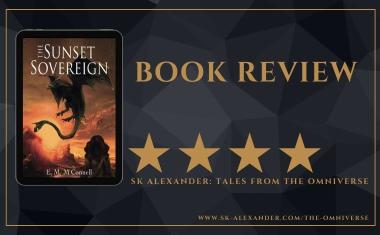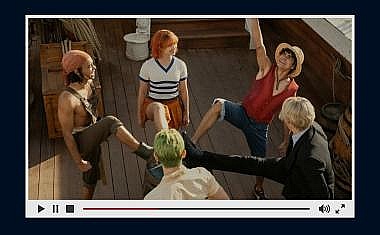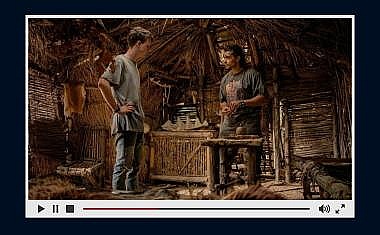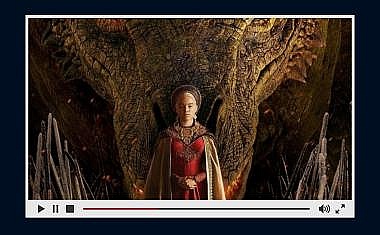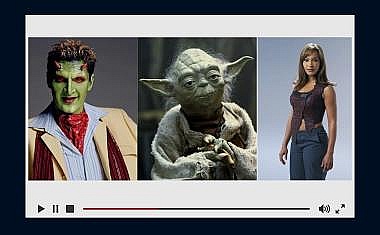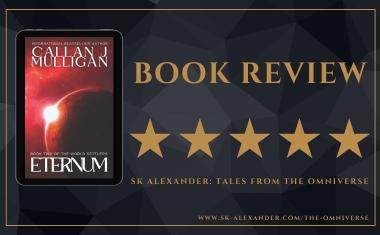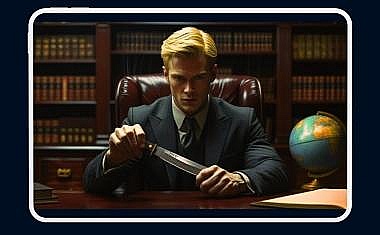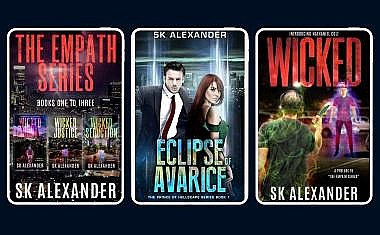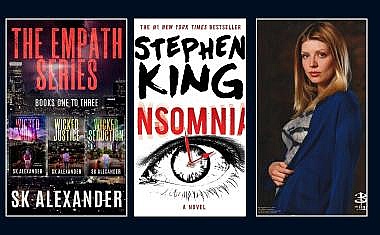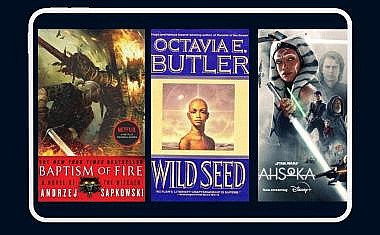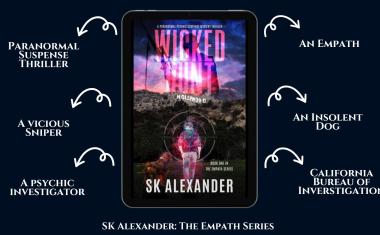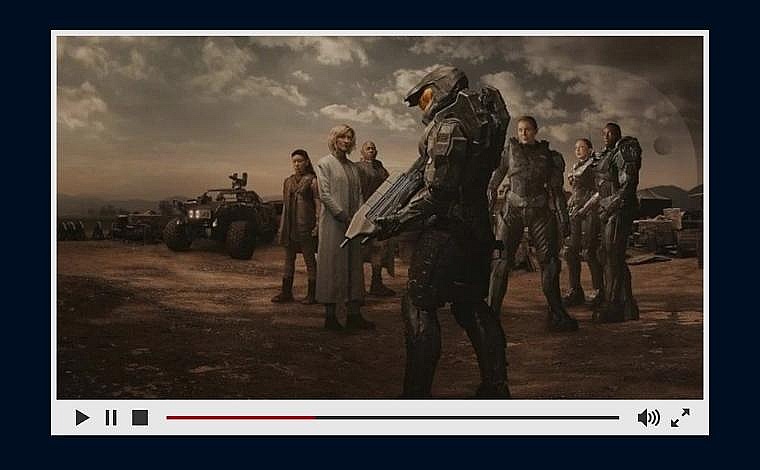
Halo - Review Season One
Halo, the science-fiction military media franchise, has been a behemoth in the video game industry for decades. Sadly, season one ended up as a tedious and tangled mess.
Before the show, I barely knew anything about Halo's setting and characters, so I approached the Paramount+ series without expectations.
Halo is set in the 26th century and features the United Nations Space Command (UNSC), the military wing of the United Earth Government (UEG). As humanity battles a theocratic-military alien alliance determined to annihilate them, the UNSC grapples with a movement of independence among Earth's colonies: the Insurrectionists.
When Master Chief Petty Officer John-117 (Pablo Schreiber) discovers a mysterious artifact, the war with the Covenant escalates and alters the super-soldier. After a Covenant attack wipes out most of the Insurrectionists on Madrigal, the SPARTAN experiences visions that make him question his orders, prompting him to go AWOL alongside the sole survivor, Kwan Ha (Yerin Ha). The Master Chief soon learns the artifact is part of a device that can locate a massive superweapon the Covenant wants for religious reasons.
Lack of clarity
Fans have criticized the series for straying from the source material, but as someone who doesn't know the original story, I don't care about any inaccuracies. The storytelling, however, lacks a central focus and emotional heart.
The logical heart of the show should have been Master Chief John-117. So, when he disregards orders to rescue Kwan Ha, I assumed the series would explore their evolving relationship, akin to a pseudo-parent-child dynamic (similar to the Mandalorian and Grogu). However, John abandons Kwan with a SPARTAN deserter called Soren (Bokeem Woodbine). Meanwhile, the Covenant sends a young human, Makee, to infiltrate the UNSC and steal the artifact.
At this point, the narrative splits off into several plot arcs that unfold throughout the season: the quest to unlock the artifact's secrets, Kwan Ha's mission to liberate Madrigal, the Master Chief's increasingly tumultuous relationship with Dr. Catherine Halsey (Natascha McElhone), and the political conflicts within the UNSC.
While there are sporadic bursts of action scattered throughout the season, prolonged periods of character-driven drama overshadow them. With so many plotlines to manage, the show struggles to give its characters the development they deserve. This results in a story that's poorly paced and emotionally flat. At the end of the season, I just didn't care what happened to them.
Master Chief and the dysfunctional team
Though the Master Chief is meant to be stoic, I found him underwhelming. While Pablo Schreiber gives a solid performance, the character feels underdeveloped. This is problematic, as Master Chief is a complex character. John-117 isn’t a ‘good’ man. He is a battle-hardened killer, forged into a relentless weapon through years of harsh training, and physical, psychological, and chemical abuse.
Even with the AI Cortana (voiced by Jen Taylor) as his guide, something is missing. Given his erratic behavior, I struggled to view him as a natural leader or a competent super-soldier commanding an army.
Kai-125 (Kate Kennedy) serves as a counterpart to John, especially after they both remove their emotion suppressant pellet. I don't like her, but her new emotions feel more genuine than John's, particularly her panic during that Covenant fight.
Furthermore, the dynamic within Silver Team feels disjointed, with John and Kai on one side and Riz-028 (Natasha Culzac) and Vannak-134 on the other. This lack of cohesion undermines their credibility as a team. I expected more teamwork and trust from the core SPARTANs, but it didn't happen.
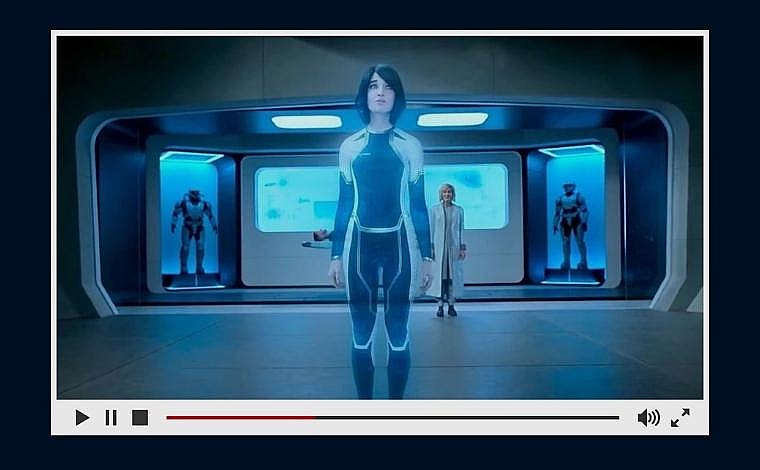
Dr. Halsey: The caricatured mad scientist
Natascha McElhone shines as Dr. Catherine Halsey, the founder of the secretive and highly controversial SPARTAN program. Starting as a maternal figure for John-117, she turned into a morally ambiguous scientist who believes the ends justify the means for the betterment of mankind. This change feels too hurried, though. If they'd spent more time showing her role as John's maternal figure and her importance in the UNSC, her betrayal would have been more impactful. Sadly, her depiction as a workaholic, brilliant (yet somewhat villainous) scientist feels simplistic and lacks depth.
Miranda Keyes (Olive Gray) serves as a foil to her mother, Dr. Halsey’s. While both want to ensure humanity's survival, Keyes emphasizes the honor and duty instilled by her father, Captain Jacob Keyes (Danny Sapani). However, her character feels somewhat generic in her attempts to escape her mother's influence and win her approval.
The superfluous Makee
The show fails to fully use the potential of Makee. It's infuriating to watch the supposedly powerful UNSC fall for her transparent ploy to infiltrate their secure space for the Covenant. The rushed romance between John and Makee feels contrived and lacks originality. The romance should have been developed earlier and more gradually, exploring the challenges of their relationship across the war-torn divide.
The writers rushed Makee's double (triple)-cross and subsequent demise. More time spent exploring her inner turmoil and divided loyalties would have made her character more complex and the story more engaging.
The forgettable Insurrectionist
The series premiere features Kwan Ha (Yerin Ha), but the show doesn't explain or need her continued presence. Her story feels tacked on and doesn't matter to the main plot. The same is true for Soren. Neither do I care for his backstory as a deserted SPARTAN-II turned pirate, nor do I understand his role in the larger plot.
Overall, both characters contribute little to the series.
Who is the villain?
A significant flaw this season is its lack of focus on The Covenant and the Prophets as the primary antagonists. The limited screen time and unconvincing portrayal fail to convey the fear and menace these genocidal alien leaders should inspire. The show should have focused on the Covenant as the real enemy, rather than the UNSC's internal conflicts.
Moreover, the series quickly establishes humanity's UNSC as morally ambiguous, mirroring the ruthlessness and oppression of The Covenant. The UEG’s harsh colonial rule has fractured the society, which birthed the Insurrectionists and pirates.
The show avoids the usual "good humans vs. evil aliens" trope. However, with all factions and characters depicted as morally compromised, I’m left questioning who to root for in the conflict. Why should I care for the Master Chief, or any human character, if they don’t have a (monstrous) foe?
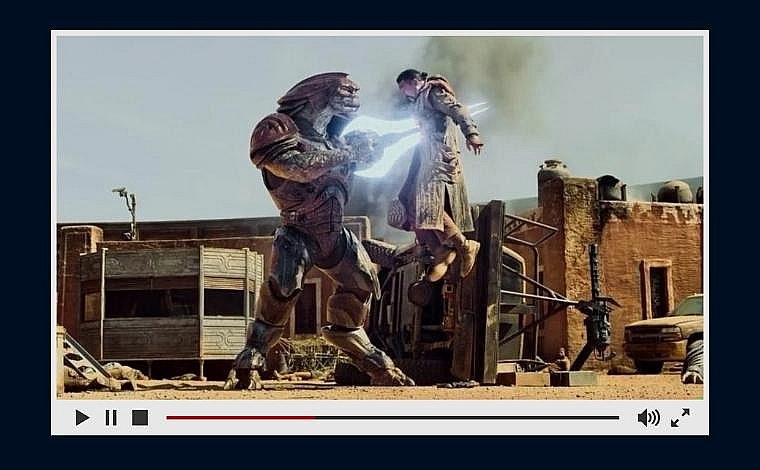
Short on action
The opening scenes immediately throw viewers into the chaotic conflict on Madrigal, highlighting both the Covenant's brutality and the SPARTAN's heroism. Too bad the rest of the show isn't as good as the beginning. While there are some exciting fight scenes, the show mostly centers on relationships. The military science fiction show about humanity's fight for survival against aliens didn't deliver the adrenaline-pumping action I expected.
Halo's visuals don't live up to the high production budget. Although there are beautiful scenes, a $200 million budget should have yielded a much better result.
Rating Halo
Halo fails to capture the essence of a space epic akin to Battlestar Galactica. Though the world-building is strong, the story and characters fall short.
The show missed a chance with Cortana. The AI's internal struggle between her programming and burgeoning attachment to Master Chief feels rushed and underdeveloped. Season one should have focused on the Master Chief and Cortana, battling against the Covenant for humanity's survival. To make us care more about the characters, the show should have explored their relationships and fights with Dr. Halsey better.
With 24 episodes, the show could have explored its characters and their relationships more thoroughly. Between the confusing plot and slow pace, I lost interest.
2 stars

